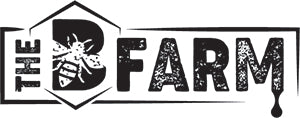Beekeeping is an artful science. The Varroa Sensitive Hygiene (VSH) trait in honey bees is one of the latest advancements transforming hive management. This trait is pivotal in maintaining hive health, making it a topic every beekeeper should familiarize themselves with. Today, we round up the best information on the most common apiarian inquiry: What is the VSH trait in honey bees, and why is it important? Find out the best-kept secret to healthier hives!
What Is the VSH Trait?
The Varroa Sensitive Hygiene (VSH) trait refers to how honey bees detect and remove Varroa mites from their brood cells. Varroa mites are tiny parasites that can devastate bee colonies by feeding on the bees and spreading diseases. The VSH trait is a natural defense mechanism, enabling bees to identify and eliminate these harmful invaders, thus improving the hive’s overall health.
The Role of VSH in Hive Health
Introducing the VSH trait in bee populations has remarkably improved hive health. Bees with this trait are more vigilant in identifying and removing infested broods, thereby curbing the spread of Varroa mites. This proactive approach reduces mite populations naturally and enhances the colony’s resilience against other stress factors, such as diseases and environmental challenges. For beekeepers, this means stronger, more productive hives and higher honey, propolis, pollen, and royal jelly yields.
Genetics and Inheritance of VSH
The Genetic Basis of VSH
The VSH trait is not a random occurrence but a selective genetic characteristic found in mated bee populations. Research has identified specific genes associated with this trait, making it possible to enhance these desirable qualities through careful breeding programs. This genetic foundation ensures the bees can pass on the VSH trait to future generations, sustaining healthier bee colonies over time.
How Honey Bees Inherit VSH
Like any other genetic trait, VSH passes through breeding from one bee generation to the next. Beekeepers focus on individuals who exhibit vital VSH behaviors when selecting queens and drones for breeding. The offspring of these selected bees are more likely to inherit the trait, gradually increasing the prevalence of VSH within the population. This strategic breeding approach is vital for maintaining and expanding the benefits of the VSH trait across apiaries.
Get VSH Honey Bees at The B Farm
Understanding what the VSH trait in honey bees is and why it is important is a game-changer for beekeepers. The VSH trait offers a natural solution to one of the biggest challenges in beekeeping, reducing the need for chemical treatments and enhancing hive health. By focusing on the genetic basis and inheritance of VSH, beekeepers can make informed decisions to improve their colonies.
Ready to strengthen your hives? Learn about the VSH queen bees for sale at The B Farm and take the next step toward a healthier, more prosperous apiary. The VSH trait will continue to produce healthier hives, one bee generation at a time.
